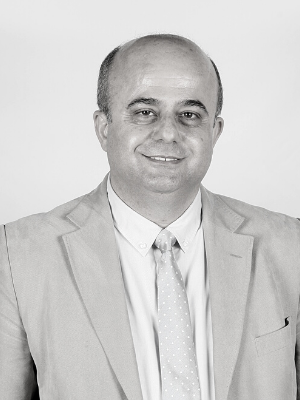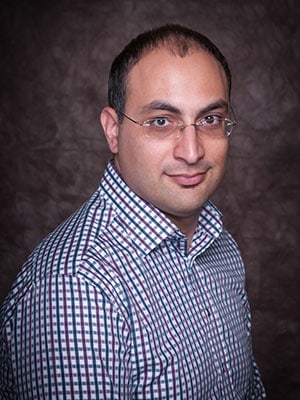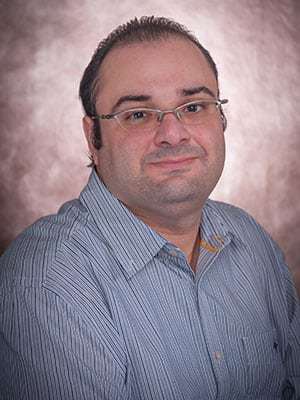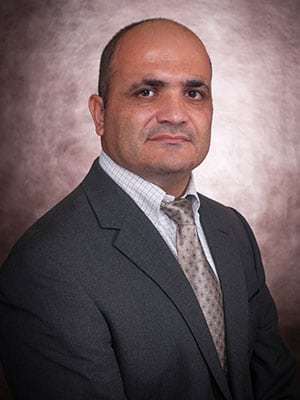Electrical Engineering
(PhD, 3 Years)
Duration
3 years
Qualification Awarded
Doctor of Philosophy in Electrical Engineering
Level of Qualification
Doctorate Degree (3rd Cycle)
Language of Instruction
English
Mode of Study
Full-time or Part-time
Minimum ECTs Credits
180
Request Information
Electrical Engineering (PhD, 3 Years)
| Duration | 3 years |
| Qualification Awarded | Doctor of Philosophy in Electrical Engineering |
| Level of Qualification | Doctorate Degree (3rd Cycle) |
| Language of Instruction | English |
| Mode of Study | Full-time and or Part-time |
| Minimum ECTS Credits | 180 |
Request Information
Program’s purpose and objectives:
The doctorate degree is intended for students who have excelled during their undergraduate and/or graduate studies, have a strong motivation and enthusiasm toward scientific research and innovation, and are inclined to remain in an academic or research environment working on emerging technologies and challenging engineering projects.
The Department of Engineering at the University of Nicosia is dedicated to provide PhD candidates with in-depth academic knowledge and research experience on advanced engineering topics such as telecommunications, signal and image processing, wireless communications, microwave engineering, antenna technology and wave propagation, power system analysis and design, renewable energy technologies, sensor and intelligent systems, machine learning and optimization techniques, and VLSI and embedded systems. The high-caliber academic staff of the department is dedicated to work closely with students to solve current engineering problems thereby producing new knowledge and results that can be published in reputable journals and conference proceedings.
During their studies, students will have the opportunity to work on research projects, co-author papers with their supervisors and other class-mates, present their contributions at international conferences, participate in the write-up of new research proposals, prepare scientific reports and presentations, use simulation software and other computational tools, perform laboratory experiments and measurements, attend training schools and short-term missions, participate in workshops, and more. The three-year experience acquired during their PhD studies, working primarily on formulating and solving challenging engineering problems, will provide students with the necessary skills and qualifications to excel in their field of expertise and secure a research/academic position at a university or college, a government institute, or high-tech company.
The general objectives of the program are the following:
- Prepare capable students to become independent researchers and academics in the demanding and constantly evolving field of electrical engineering;
- Provide students with highly specialized and advanced scientific knowledge;
- Teach new methodologies and scientific approaches tailored toward innovative design, scientific progress, and technological evolution;
- Promote analytical thinking, creativity, and research skills to effectively tackle critical engineering problems;
- Provide extensive training and professional practice in their primary area of research interest;
- Enhance competences related to effective leadership, innovation, autonomy, scholarly and professional integrity.
The specific objectives of the program are the following:
- Provide advanced knowledge, analytical and computational skills, laboratory experience, exposure to engineering tools and specialized software in order for students to successfully engage in research and innovative design, analysis, and problem-solving methodologies;
- Facilitate learning through research and skills training via experimentation and laboratory work in areas of high expertise in the Department such as wireless and optical communications, power engineering, signal and image processing, electromagnetics and antenna technologies, embedded electronics and VLSI systems, machine learning and optimization techniques;
- Train students on how to properly design new electrical engineering systems or implement established processes towards the solution of challenging engineering problems;
- Facilitate student participation in international workshops and conferences in order to develop self-confidence, reassurance and motivation, and engage into peer evaluation and professional networking;
- Prepare students to develop oral and written communication skills and promote team work, collaboration, and engineering ethics;
- Provide students with the skills required to write proper technical reports and articles for scientific journals and conference proceedings.
Occupational Profiles of Graduates with Examples
PhD graduates from Electrical Engineering program have opportunities for employment as researchers, academics, or engineers in high-tech companies.
Access to Further Studies
Upon graduation, students would have obtained the highest academic title possible.
Eligible candidates should hold a recognized Master’s degree in Electrical Engineering, Electronic Engineering, Computer Engineering or a related field in Pure Sciences (e.g. Mathematics, Physics). An applicant may be admitted to the program subject to completing selected graduate courses offered by the Department, if so decided by the Department Graduate Studies Committee. These courses will be in addition to the 180 ECTS required by the program. A complete application should be submitted to the Office of Admissions. Students are admitted both in the Fall and Spring semesters.
Application Documents and Other Requirements
- Completed application form;
- Curriculum Vitae (CV);
- Certified true copy of the applicant’s qualifications/degree(s);
- Original or certified true copy of transcript(s);
- Proof of language proficiency; if the potential candidates’ 1st and/or 2nd degree was not taught in English a minimum TOEFL score of 550 paper-based or 213 computer-based, GCSE “O” Level with minimum “B” or IELTS with a score of 6.5);
- Two reference letters;
- Research work and published articles (if any);
- Initial research proposal: An initial proposal (1,000 – 2,000 words) outlining the research topic, aims and objectives, research questions and proposed research methodology;
- Statement of purpose: applicants are required to submit a comprehensive outline highlighting their academic and individual competencies and state why they believe they are suitable for admission to the program, as well as their reflections regarding the expectations and value of the program for their personal advancement and career development.
Assessment consists of the examination of the thesis proposal, the thesis, the presentation of the thesis as a public lecture and the oral examination (viva).
The PhD program requires the completion of 180 ECTS out of which 30 ECTS are allocated to the preparation of the research proposal and 150 ECTS are allocated to the research, write-up and defense of the Thesis.
The PhD student will have to register for 30 ECTS credits every semester until s/he accumulates 150 ECTS plus 30 ECTS for the research proposal. The minimum number of years for completing the PhD is three (3) and the maximum number of years is eight (8).
The PhD program entails the following stages:
- Attendance of a number of graduate courses should the Departmental Graduate Studies Committee recommends depending on the academic background of the student;
- Write-up and defense of the PhD research proposal before the Supervisory Team;
- Research work by the PhD candidate under the guidance of main Supervisor and the Supervisory Team;
- Write-up and submission of the Thesis;
- Defending the Thesis before the Examination Committee.
Upon successful completion of this program, the students should be able to:
- Demonstrate deep understanding of their research topic(s) and apply advanced tools and research techniques associated with their field(s) of expertise;
- Work as part of a team in an academic or research environment developing and promoting new ideas and concepts on emerging and promising technologies;
- Promote scientific and technological advancement with applications in different sectors of our knowledge-based society;
- Use critical thinking, analytical reasoning, and problem-solving skills to tackle important challenges of today’s technological world;
- Demonstrate abilities to conceive, design, implement, and adapt a research-based system or process for a successful outcome;
- Perform original research and provide notable contribution that extends the frontier of science through the development of work which can be published in international refereed journals;
- Teach young scientists research methodologies, technical knowledge, and skills on engineering practices related to product design and development.
| Course Code | Course Title | ECTS Credits |
|---|---|---|
| PHDF-100 | Doctoral Course – Fall semester | 30 |
| PHDS-100 | Doctoral Course – Spring semester | 30 |
| Course Code | Course Title | ECTS Credits |
|---|---|---|
| PHDF-100 | Doctoral Course – Fall semester | 30 |
Semester 2
| Course Code | Course Title | ECTS Credits |
|---|---|---|
| PHDF-100 | Doctoral Course – Fall semester | 30 |
Semester 3
| Course Code | Course Title | ECTS Credits |
|---|---|---|
| PHDF-100 | Doctoral Course – Fall semester | 30 |
Semester 4
| Course Code | Course Title | ECTS Credits |
|---|---|---|
| PHDF-100 | Doctoral Course – Fall semester | 30 |
Semester 5
| Course Code | Course Title | ECTS Credits |
|---|---|---|
| PHDF-100 | Doctoral Course – Fall semester | 30 |
Semester 6
| Course Code | Course Title | ECTS Credits |
|---|---|---|
| PHDF-100 | Doctoral Course – Fall semester | 30 |
Note: The above semester breakdown is an indicative one. A few of the courses are electives and can be substituted by others. Students may contact their academic advisor and consult their academic pathway found on this website under “Schools & Programmes”.









